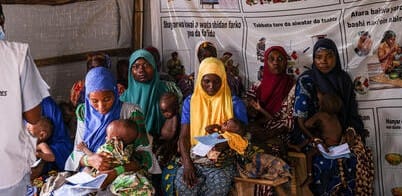By Ahmed Rufa’i, Dutse
As Nigeria commemorates International Safe Motherhood Day, health workers and women across Jigawa State are raising concerns over a growing shortage of family planning commodities in public health facilities. They’re calling on the state government to urgently restore supply and ensure affordability for women of reproductive age.
During visits to Dutse General Hospital, Rasheed Shekoni Teaching Hospital, and several primary healthcare centers in Kiyawa, Jahun, and Buji LGAs, National Update confirmed that many of the Health Facilities had run out of key family planning supplies despite rising demand.
One clinic official, speaking anonymously, noted, “Women are informed and eager to use family planning. Even husbands are supporting them—but there’s nothing to offer. They’re being turned away.”
The shortage is forcing some women to seek costly private options or risk falling into the hands of unqualified providers.
“Not everyone can afford tertiary hospitals,” another health worker said. “That’s when the danger starts—some may turn to quacks.”
Women also voiced frustration over the repeated unavailability of contraceptives.
Ramatu Balarabe, a housewife, said, “We’re told to come back in weeks, but we may already be pregnant by then. Most husbands won’t wait.”
Zaituna Sanda, 25, shared that despite agreeing with her husband to use contraceptives, “We’ve gone to several clinics for five months—there’s nothing.”
Habiba Nuraddeen, a mother of four, pleaded for government help:
“These commodities used to be free. Now we’re asked to pay. We need help to properly space our children.”
Program Manager of The Challenge Initiative (TCI) in Jigawa, Ankale Kongude, confirmed that the issue lies with stalled procurement.
“The last purchase of commodities was in 2022, despite budget allocations in 2023 and 2024. Implementation is lagging.”
He urged the State Government to ensure sustainability as TCI prepares to exit: “Without immediate action, the progress made in family health is at risk.”
The message from both health professionals and the women they serve is urgent and united: Jigawa must act now to restore access to life-saving reproductive health services.

